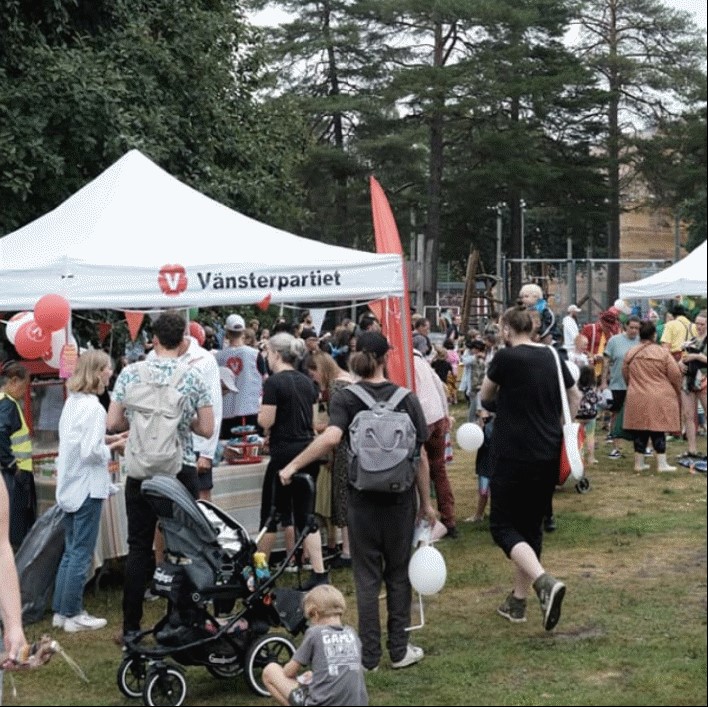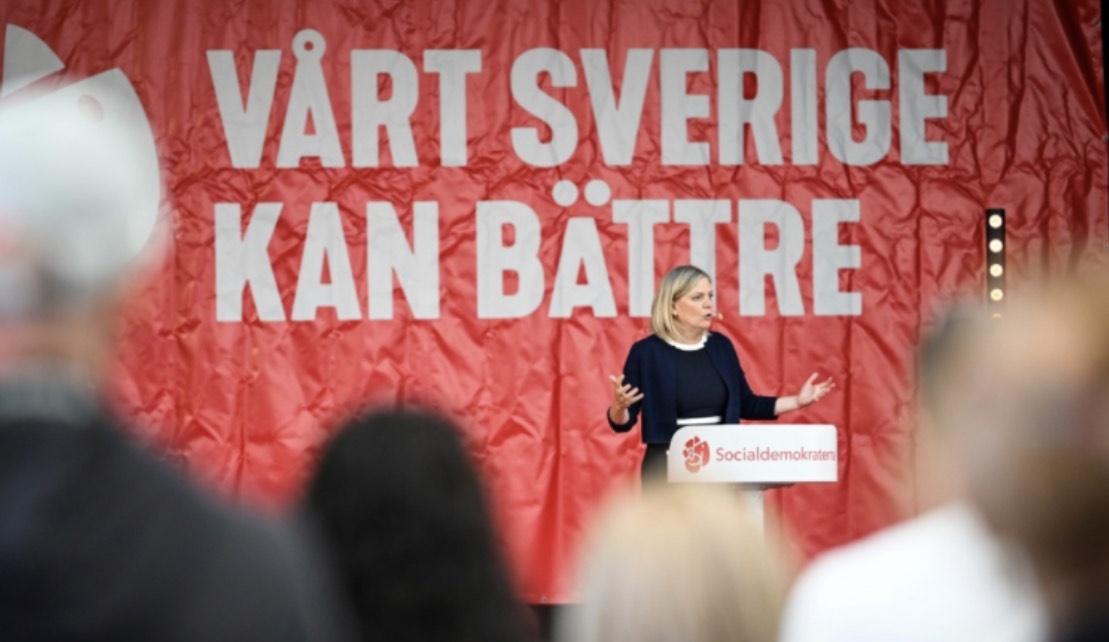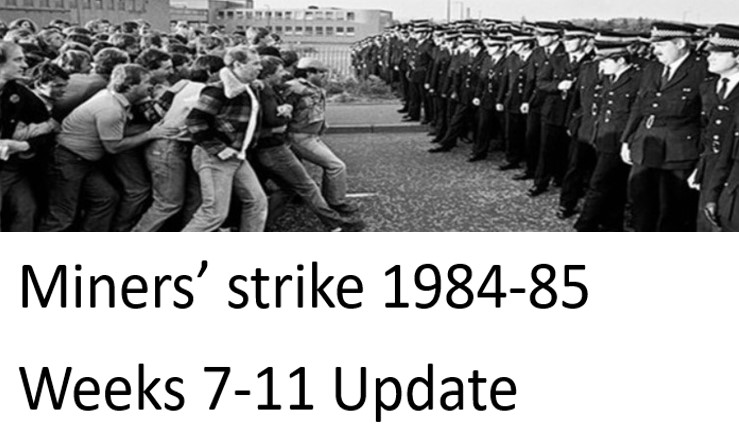By Erik Andersson, member of the Left Party of Sweden
The result of the Swedish election has finally shattered what was left of the self-view of Sweden as being a progressive country, supposedly immune to the rise of right-wing populism across the west. Now the most right-wing government since the introduction of universal suffrage will be formed, with a programme which is like a carbon copy of the election platform of the right wing nationalist Sweden Democrats party.
During his inaugural speech as prime minister, the party leader of the so-called Moderate Party Ulf Kristersson said “Immigration is the biggest problem facing our country.” For the last few years, the Swedish right-wing has almost exclusively focused on immigration and law and order. Gone are the times when they proudly raised the banner of privatization and tax cuts. The issues of immigration and law and order are used as a smokescreen to distract from the very real crises facing working people.
Gradual dismantling of the “Swedish model”
This has been many years in the making. Step by step the so-called “Swedish model” has been dismantled. Large portions of our public services have been privatized, handing over schools, nursing homes and home care to private companies or even venture capitalists.
Sadly, this has been carried out partly by the Social Democratic Party, in the name of “renewal” or claims that this is needed in order not to scare off “the urban middle class”. For years, this mythological “urban middle class” was considered the big challenge for the labour movement as they were turning towards the right. At the same time, working class voters across the country were taken for granted. And the differences between the political blocks when it comes to social and economical issues became less and less clear. To put it plainly, the labour movement and the left didn´t make changes that were palpable for people in their daily lives. The difference between left and right being rather if things would largely stay the same or turn far worse.
During the last four years, the demarcations between the labour movement and the right wing on these issues has only become more and more blurred. The last election resulted in a hung parliament, leading to a very unstable parliamentary situation.
Conflict over rent rises and labour laws
In 2018, the Social Democratic Party formed a government with the Environmental Party, based on an agreement with the misleadlingly named Centre Party and the so-called Liberals. Although these parties didn´t have a majority in parliament, they decided to ignore the Left Party, even writing into their agreement that the party “should be kept out of every form of influence over the politics of the government”.
After a somewhat heated internal debate, the Left Party decided to let this government be formed, but declared certain “red lines” which would result in the party supporting a vote of no confidence in the government. These “red lines” included not least a point in the agreement aiming to uproot the regulated Swedish tenancy market based on utility value, in favour of market rents, beginning with all newly constructed apartments. This would have signalled the end of the Swedish system of collectively bargained rents based on the principle of utility value (which has been eroded, but still helps limit rents) and would have led to rent increases of 20-50% in many places.
Another part of the agreement was the biggest “reform” of Swedish labour laws in decades, further weakening and dividing the once mighty Swedish trade unions.
The agreement between the Social Democratic Party and these two right-wing parties was done with reference to “keeping the Sweden Democrats away from political influence”, an argument that also finds a certain echo among progressive and left-wing voters. But the question is if there´s any limit to this “lesser evil” reasoning, and we also have to ask ourselves how we can effectively fight right-wing populism.
Fortunately, the Left Party set some limits to the rightward drift of social democracy. In May-June of 2021, after years of warnings that they would not tolerate market rents, the Left Party finally gave the government an ultimatum: withdraw the proposal or face a motion of no confidence. At first, the Social Democratic government and their partners in the Centre Party (who had fought for including market rents in the agreement) blankly refused, but had to back down at the last minute.
Pre-election issues of pensions, Ukraine and the cost of living crisis
A few months later, it was time for another temporary crisis for the government. When it was going to present its budget proposal, the Left Party demanded that the lowest pensions should be increased by up to 1,000 Swedish Krona (SEK), the equivalent of £80 in the UK. Yet again, the Social Democratic government and its Centre Party allies first refused, but were eventually forced to include the proposal in the budget.
This helped strengthen the Left Party, gaining several thousand new members and reaching a peak of 11% support in opinion polls. The party maintained a similar level of support until the outbreak of war in Ukraine. The Russian invasion led to immediate internal havoc within the Left Party, when the party leadership first voted against sending weapons to Ukraine and then reversed the decision in a matter of days after a heavy-handed intervention by the top brass of the party. This reflected heavy pressure on the party especially in the first few weeks and months after the outbreak of war. A form of siege mentality developed, which the Social Democratic government tried to use to its benefit by invoking its ability to steer the nation through rough seas.

When the election campaign began in mid August, the issue of war and defence had died down, but was replaced by the threat of soaring energy prices and high levels of inflation. Unfortunately, the leadership of the labour movement was not willing to mount a challenge against the huge profits of the energy companies or the cost of living crisis in general. In fact, trade union leaders have generally been very meek when it comes to the cost of living crisis, even invoking the spectre of the “inflation spiral” as an argument against fighting for higher wages. This line has been partly challenged by some trade unions, but in a hesitant and cautious way rather than as a call to arms.
Instead, the right-wing tried to position themselves as the defenders of house-owners and car-owners, pitting them against environmentalists and raising the perspective of new nuclear reactors as a magical solution to all of our worries. The left and the labour movement should fight the cost of living crisis while ramping up investments in adapting society to climate change. If the process of adapting society to climate change is perceived as unjust, this will contribute to a backlash.
Signs of a fightback within the Trades Unions and the wider movement
What is needed is a fight-back uniting a broad alliance of the labour movement, the left, environmentalist movements, tenants associations, anti-racist campaigners and so on. The trade unions could potentially play a decisive role in such a fight-back.
Unfortunately, the process of negotiating counter-reforms to Swedish labour laws contributed to splitting and paralysing the Swedish trade union movement as a political force. The trade unions played a very minor role in the election campaign. But economic developments could shake the trade union movement out of its slumber. Just yesterday, a group of trade unions united in an alliance called 6F proposed a crisis agreement for the whole of the labour market which would mean that everybody would get the same wage increase measured not in percentage but in Swedish Krona. That would mean that those on lower incomes would get a higher percentage wage increase. It remains to be seen if this gains an echo within the rest of the LO (the Social Democrat linked Trade Union Confederation).
Sooner rather than later, these issues will have to be settled. Inflation does not seem to be going anywhere, as we are heading into a winter of impending energy crisis which could further hit working class families. But the rising costs will not only affect households or industry, but also public services. If the municipalities and regions are not compensated for rising costs, the result will be sweeping cuts. If we don´t want cuts to public services or a torturous economical crisis, we will have to fight back. And we need to prepare for it now.



